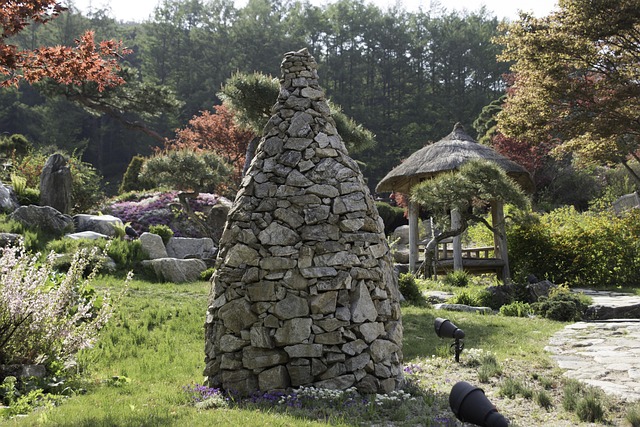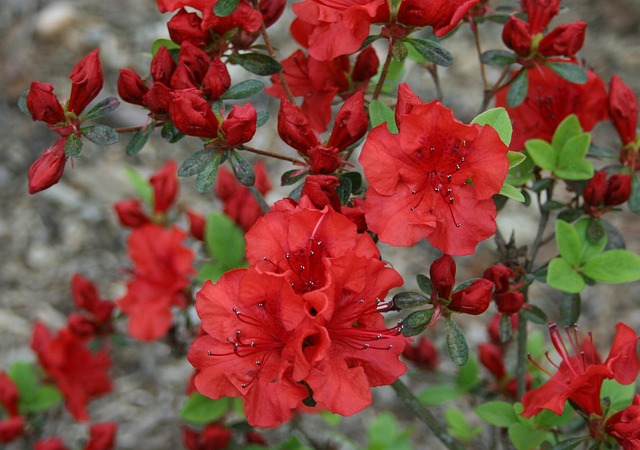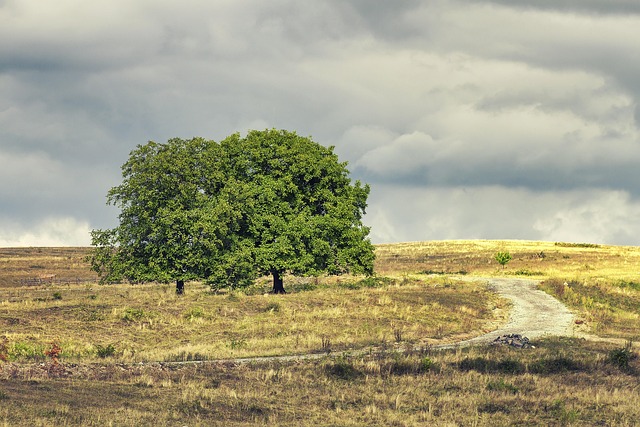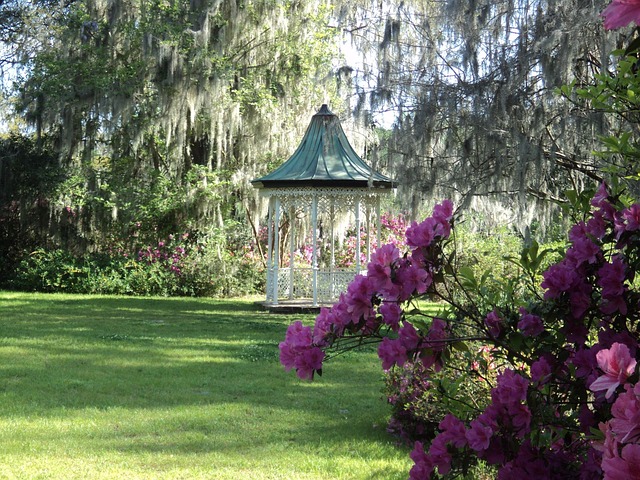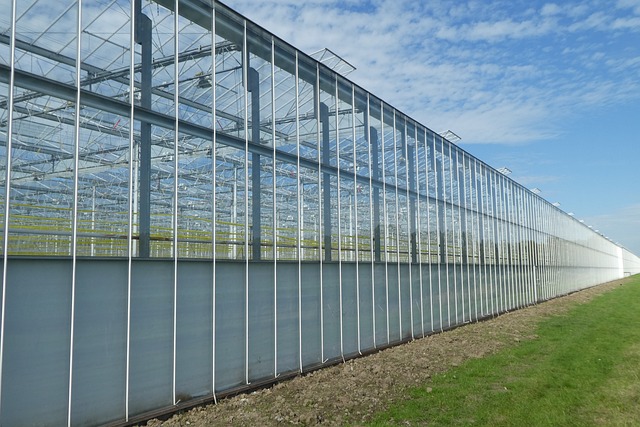Portland, Oregon, is renowned for its commitment to sustainable urban planning and environmental conservation, which extends to its thriving landscaping scene. This city promotes eco-friendly practices by leveraging native plant species to support local wildlife and conserve water. Landscapers in Portland integrate recycled materials and efficient irrigation systems, reducing the city's carbon footprint while creating low-maintenance, climate-adapted gardens. By embracing organic pest control methods and community initiatives, Portland fosters healthier ecosystems and enhances public spaces with beautiful, sustainable landscapes, making it a leader in #LandscapingPortlandOR.
“Discover how Portland, Oregon, leads the way in eco-friendly landscaping, transforming urban spaces into vibrant, sustainable oases. This article explores the city’s commitment to environmental stewardship through innovative practices. From understanding Portland’s unique ecological landscape to uncovering popular native plants and cutting-edge water management techniques, we delve into the benefits and initiatives shaping the green future of the city. Embrace the journey towards a greener Portland with these insightful landscaping solutions.”
- Understanding Portland's Eco-Conscious Landscape
- The Benefits of Green Landscaping for Local Ecosystems
- Popular Eco-Friendly Plants and Trees for Portland Yards
- Sustainable Water Management Strategies in Urban Settings
- Innovations in Organic Pesticide Control
- Community Initiatives Promoting Eco-Landscaping in Portland
Understanding Portland's Eco-Conscious Landscape

Portland, Oregon, is renowned for its progressive urban planning and eco-conscious initiatives, and this spirit extends to its landscaping practices. The city’s diverse natural environment, ranging from lush forests to scenic waterways, has fostered a deep-rooted appreciation for sustainable living among its residents. As such, Landscaping Portland OR has evolved to include innovative solutions that harmonize with the local ecosystem while meeting the aesthetic and functional needs of its communities.
Eco-friendly landscaping in Portland often involves native plant species, carefully curated to support local wildlife and reduce water consumption. This approach not only minimizes the carbon footprint associated with importing plants but also creates vibrant, low-maintenance gardens that thrive in the region’s unique climate. Additionally, Portland’s landscape designers emphasize the use of sustainable materials, such as recycled wood and gravel, and efficient irrigation systems to ensure water conservation and overall environmental friendliness in Landscaping Portland OR.
The Benefits of Green Landscaping for Local Ecosystems
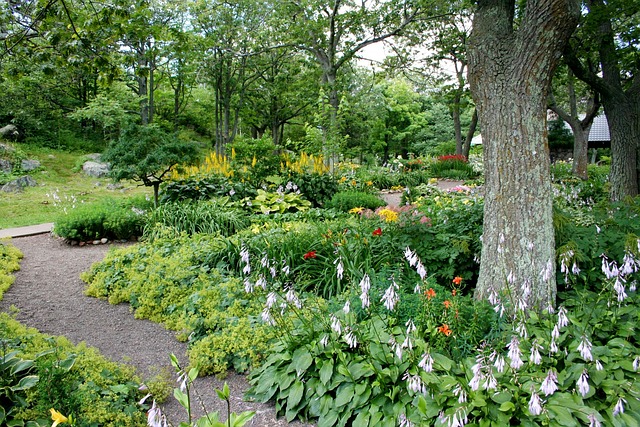
Green landscaping, a growing trend in Portland, OR, offers more than just aesthetically pleasing outdoor spaces; it’s a powerful tool for enhancing local ecosystems. By incorporating native plants and eco-friendly practices into landscapes, we provide habitats and food sources for local wildlife, from birds and butterflies to beneficial insects. This biodiversity boost helps sustain the delicate balance of our region’s natural environment.
Additionally, green landscaping solutions in Portland OR promote environmental health by improving water quality, reducing soil erosion, and mitigating the urban heat island effect. Native vegetation, with its deep root systems, absorbs rainwater more efficiently than traditional grass, preventing stormwater runoff that can carry pollutants into local waterways. These practices contribute to a more resilient and sustainable Portland, ensuring a healthier future for both residents and the rich ecological diversity that surrounds them.
Popular Eco-Friendly Plants and Trees for Portland Yards

When it comes to eco-friendly landscaping in Portland, Oregon, choosing native plants and trees is a popular and practical option. The Pacific Northwest’s mild climate supports an array of beautiful, low-maintenance varieties that are well-adapted to local conditions. Some standout choices include Oregon grape (Mahonia aquilifolia), a hardy evergreen with fragrant flowers and delicious berries, and the Western redbud (Cercis canadensis), known for its stunning pink blossoms in spring.
These native species not only thrive without excessive water or fertilizers but also provide vital habitats and food sources for local wildlife. Another popular option is the Oregon iris (Iris tenax), a vibrant perennial that adds color to shaded areas, while the Pacific rhododendron (Rhododendron macrophyllum) offers year-round interest with its evergreen foliage and showy blooms. Incorporating these plants and trees into Portland yards contributes to a more sustainable landscape, benefiting both the environment and the homeowner.
Sustainable Water Management Strategies in Urban Settings

In urban settings like Portland, OR, sustainable water management is a crucial aspect of eco-friendly landscaping. By implementing strategies such as rain gardens and bioswales, homeowners and businesses can effectively capture and filter stormwater runoff, reducing pollution and conserving precious resources. These green infrastructure solutions not only help manage excess water during heavy rains but also provide habitats for local wildlife and enhance the overall aesthetics of the landscape.
Additionally, efficient irrigation systems play a vital role in sustainable water management. Portland’s landscaping professionals are increasingly adopting smart watering technologies, such as drip irrigation and weather-based controllers, to ensure plants receive only the necessary amount of water. This approach, coupled with the use of drought-tolerant plant species, helps reduce water consumption and promotes healthier, more resilient landscapes.
Innovations in Organic Pesticide Control
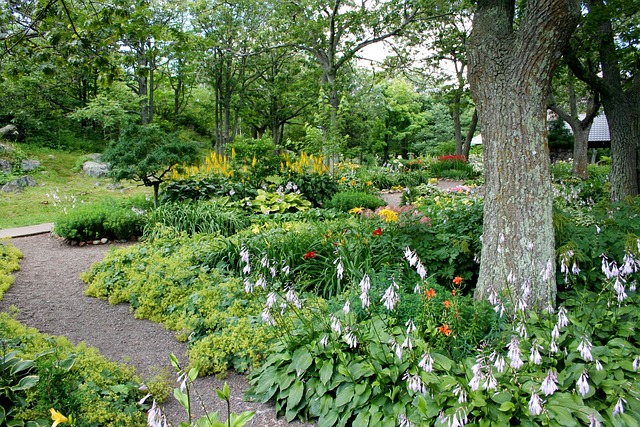
In the realm of landscaping Portland, OR, one of the most significant shifts is the increased adoption of organic pesticide control methods. This approach not only aligns with the city’s eco-conscious ethos but also offers a safer alternative for both local ecosystems and residents. Innovations such as biological pest control, which introduces beneficial insects to combat harmful ones, are gaining traction. These natural predators help maintain a balanced ecosystem while minimizing the need for synthetic chemicals.
Additionally, integrated pest management (IPM) strategies are becoming mainstream among landscaping professionals in Portland, OR. IPM combines various techniques, including crop rotation, plant selection resistant to pests, and mechanical control, to reduce the reliance on pesticides. By focusing on prevention and early detection, these methods ensure that landscapes remain healthy and vibrant without resorting to harsh chemicals, contributing to a greener and more sustainable urban environment.
Community Initiatives Promoting Eco-Landscaping in Portland

In Portland, community initiatives have been pivotal in promoting eco-friendly landscaping practices. Local neighborhoods and environmental groups often collaborate to install native plant gardens, reduce water usage through drip irrigation systems, and encourage the use of sustainable materials like compost and recycled wood chips. These efforts not only beautify public spaces but also help preserve local ecosystems by providing habitats for native wildlife and reducing the city’s carbon footprint.
The City of Portland itself plays a significant role in these initiatives through its various programs and incentives. The city offers financial assistance and technical support for residential and commercial landscaping projects that prioritize sustainability. By engaging with both residents and businesses, Portland is fostering a culture of eco-consciousness that extends beyond the boundaries of traditional parks and gardens, transforming the entire landscape into an environmentally friendly one.
In conclusion, landscaping Portland OR with eco-friendly solutions not only enhances the city’s natural beauty but also plays a crucial role in preserving its local ecosystems. By adopting green practices, such as choosing native plants, implementing sustainable water management, and opting for organic pesticide control, residents can contribute to a healthier environment. Community initiatives and innovative approaches further solidify Portland’s position as a leader in eco-landscaping, inspiring others to embrace these sustainable practices.

